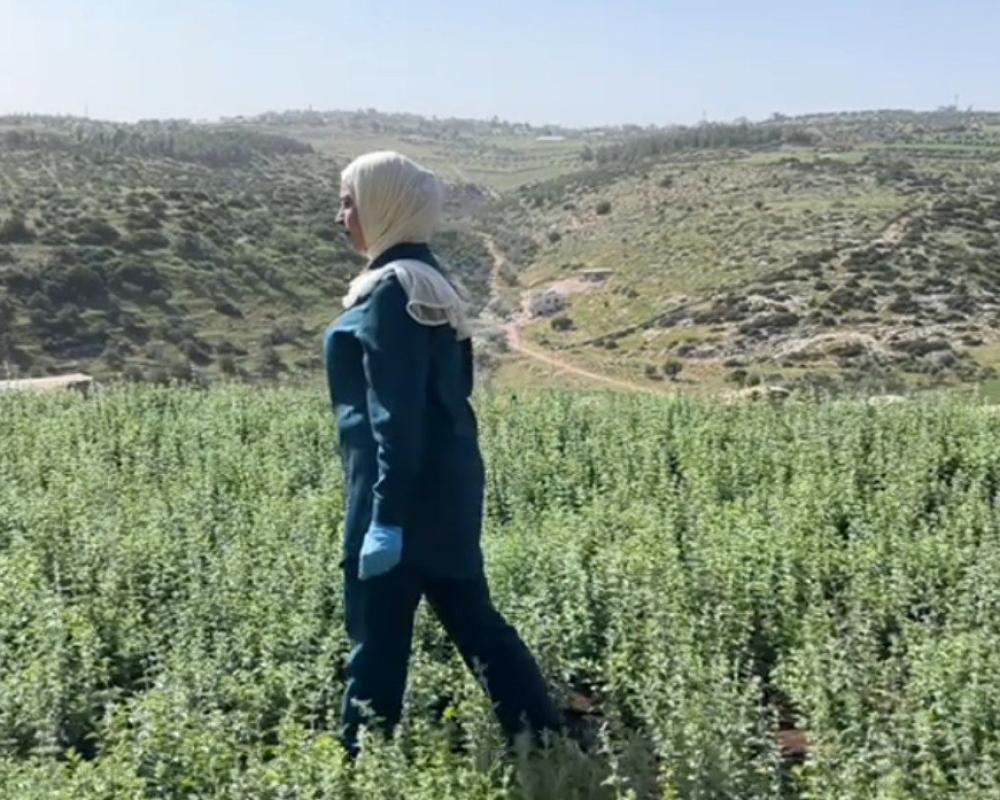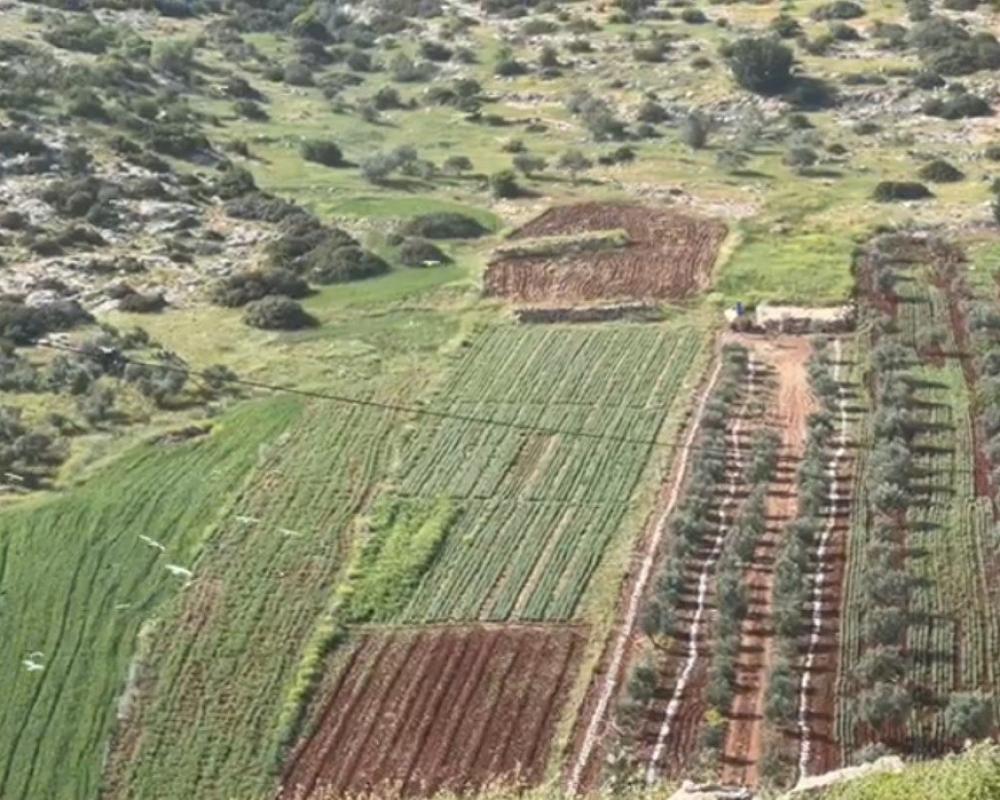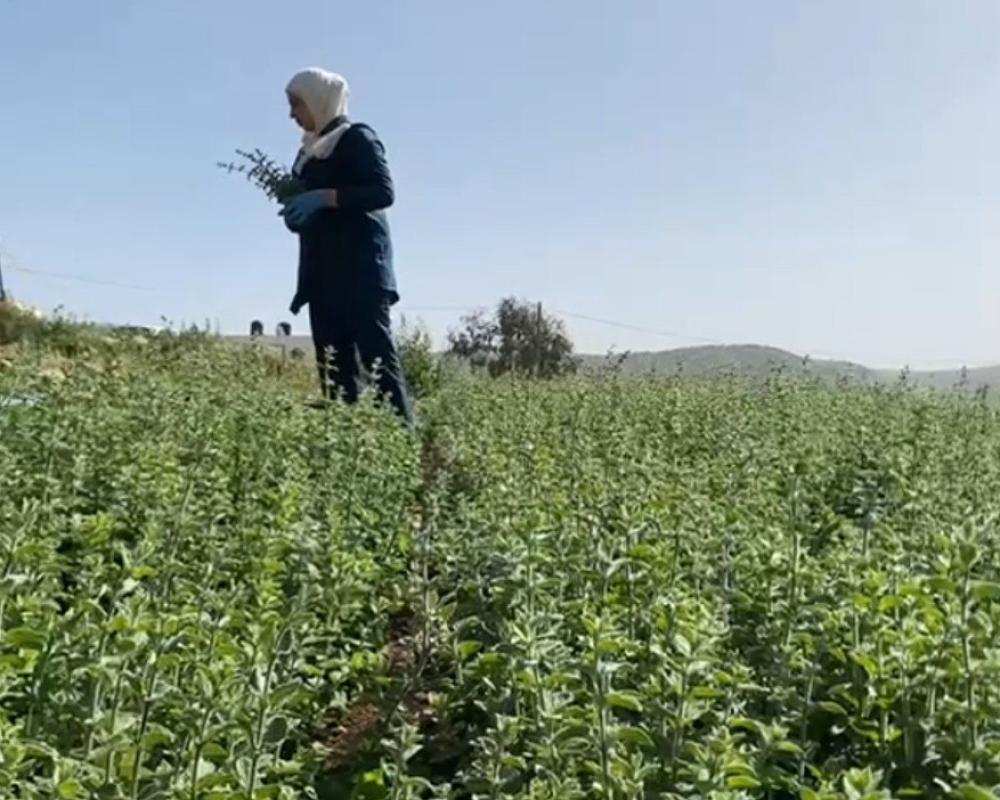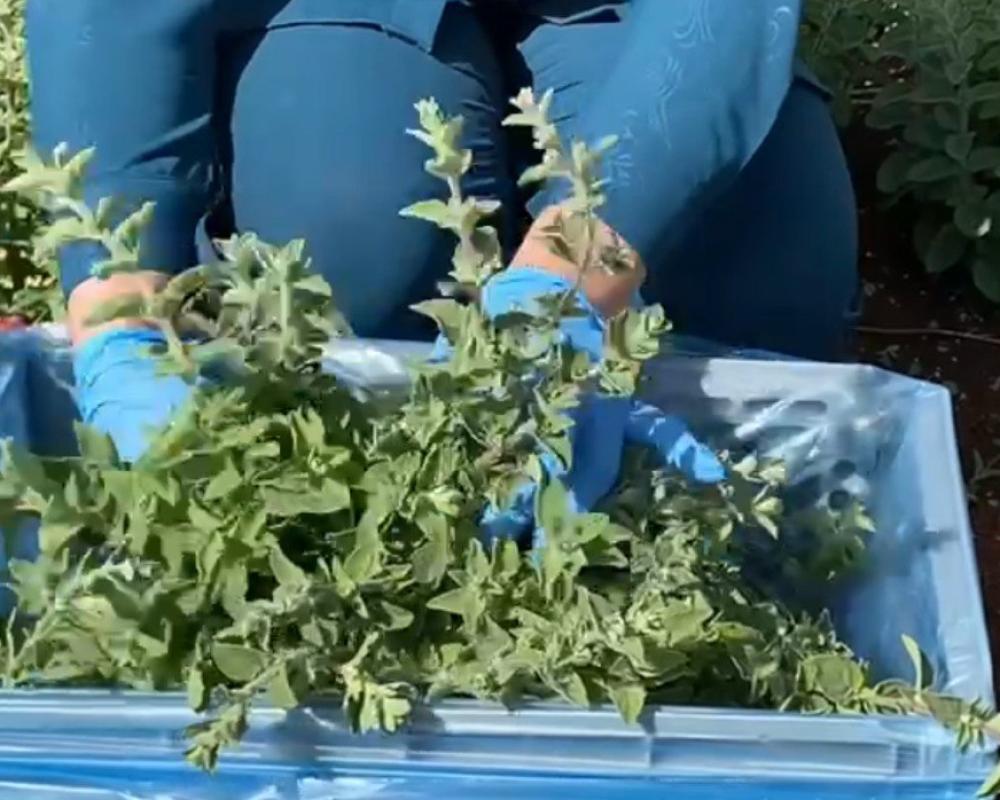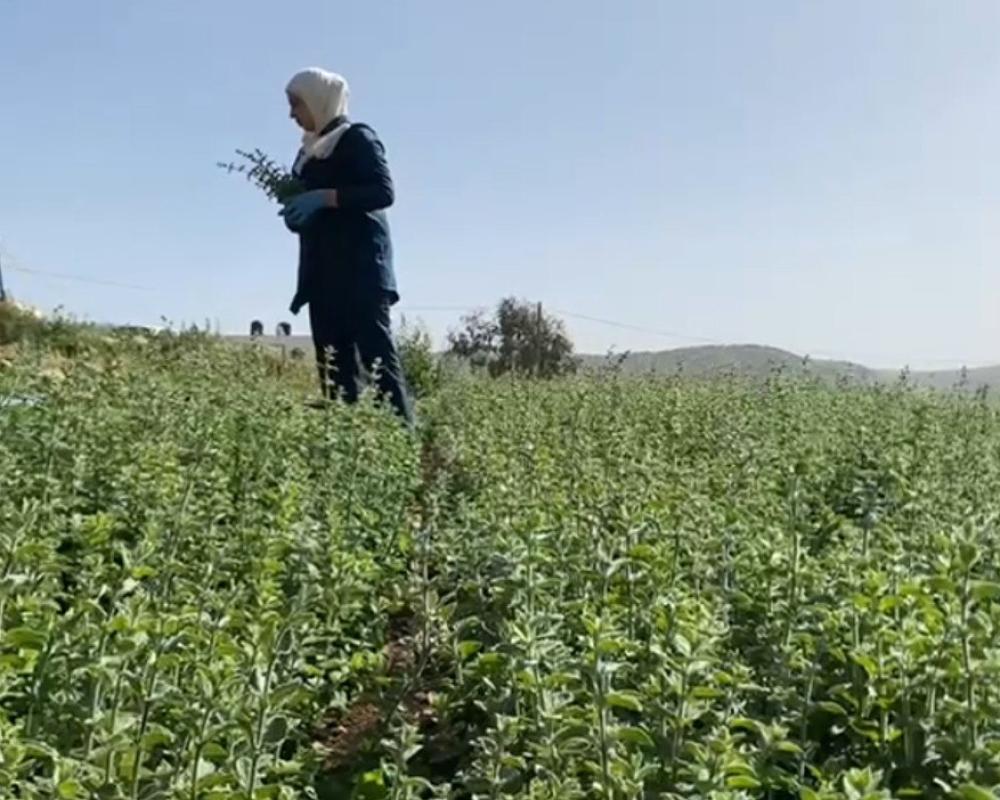
Jenin / PNN /
In a small village near the northern West Bank city of Jenin, Sonia Oweis has cultivated more than just Za’atar. Through her project “Za’atar and Trails,” she has transformed a family-owned plot of land into an eco-friendly farm and a budding rural tourism destination.
Oweis’ initiative centers on the cultivation of green Za’atar, one of the most popular and traditional foods in Jenin and across Palestine.
The farm marks the final stop in a scenic walking trail that begins in the village of Jalboun and ends in Al-Mughayir, leading visitors through a restored landscape and culminating at her Za’atar fields.
The idea took root as interest grew in heritage-based products and experiences, inspiring Oweis to revitalize her family’s land into a space that blends agriculture with tourism but the journey has not been easy.
“Access to funding was the biggest challenge,” Oweis said. “With war, limited donor support, and rising costs, I had to take slow and careful steps to move the project forward.”
Today, her farm produces both fresh and dried thyme, which she grinds and blends with sesame to create duqqa jinniyya — a popular Palestinian spice mix used in breads and traditional breakfasts.
Oweis, a young farmer balancing her work with other employment, has ambitions to expand. She hopes to eventually produce aromatic oils and establish a guesthouse at the end of the trail to host tourists and provide them with authentic rural hospitality.
To promote her products, Oweis relies on social media platforms and traditional word-of-mouth marketing. While the Za’atar she grows is not certified organic, it is cultivated using environmentally conscious methods.
She also actively seeks partnerships with NGOs and community organizations to help grow and sustain her venture — despite the broader economic challenges Palestinians face amid war and financial instability.
For Oweis, the intersection of womanhood, farming, and entrepreneurship in Palestine presents its own hurdles.
“Being a woman in agriculture, while also holding a job, can be overwhelming,” she said. “But with determination and hard work, I find joy, growth, and purpose.
She said:" My dream is to keep developing this farm, this Trails, and this vision.”
Za’atar holds deep cultural significance in Palestinian cuisine, often symbolizing a strong connection to the land and tradition. It is a staple on breakfast tables, typically served with olive oil and fresh bread.
In rural areas, generations of Palestinian women have passed down za’atar recipes, blending thyme with sumac, sesame, and salt to create unique regional flavors.
For Palestinians, za’atar carries political meaning as well as nutritional value. It stands as a symbol of resilience and identity, widely cultivated in home gardens and farms despite land restrictions and economic hardships.
This story was produced as part of the Qarib program, implemented by the French Media Development Agency (CFI) in partnership with and funded by the French Development Agency (AFD).
